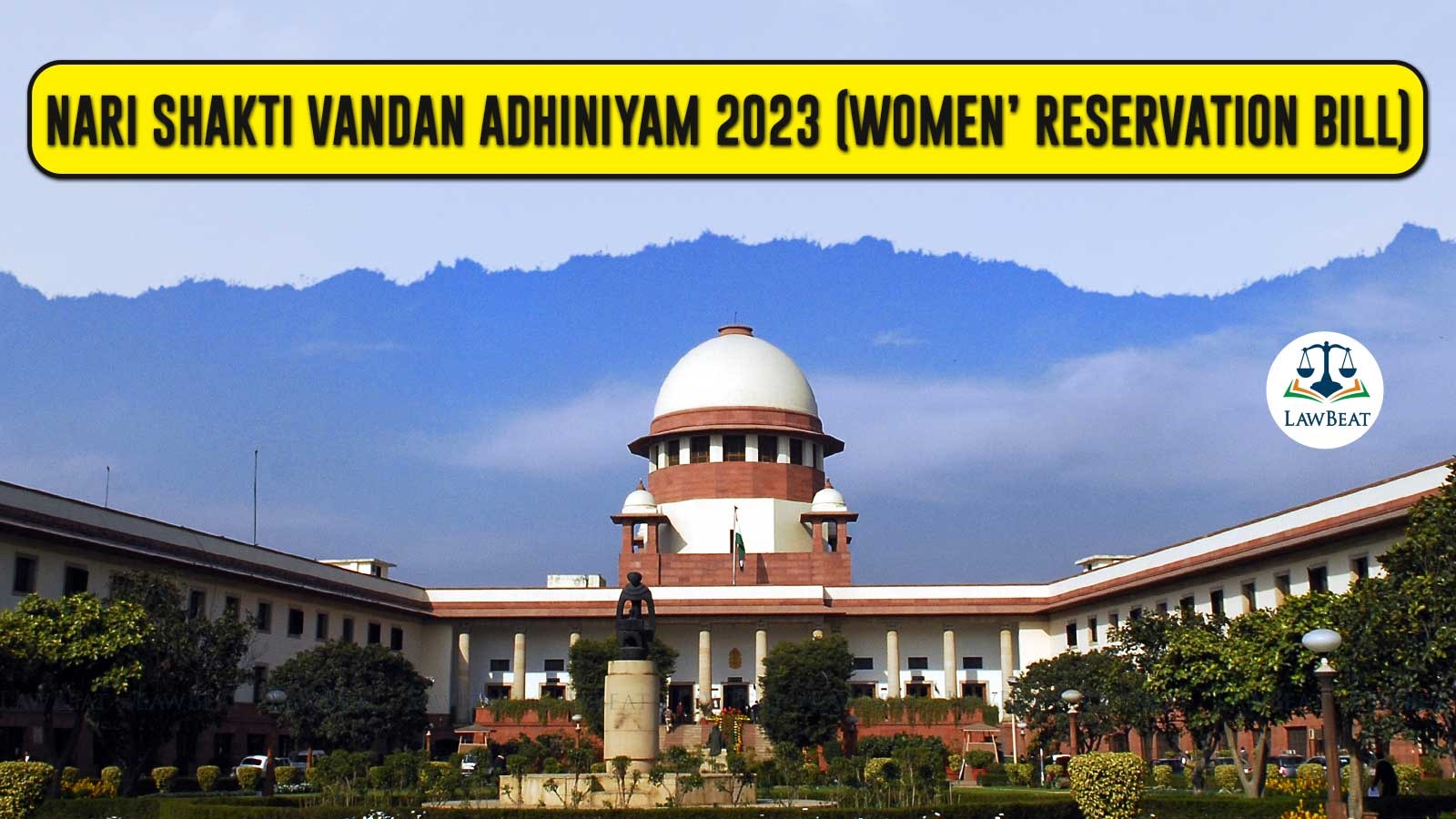Plea before Supreme Court seeks immediate implementation of Women's Reservation Bill

It has been sought that the long-pending reservation should be implemented before the upcoming General elections of 2024
A writ petition has been filed before Supreme Court of India seeking immediate implementation of the 33% Women Reservation, introduced by way of The Constitution (One Hundred and Twenty Eighth Amendment) Bil 2023 (Nari Shakti Vandan Adhiniyam) in its true letter and spirit before Parliamentary General! Election 2024.
The writ petition filed by Congress leader Dr. Jaya Thakur seeks implementation of the reservation without the rider of "after the delimitation is undertaken for this purposes after the relevant figures for the first census".
Supreme Court has been told that while the parliament rightly passed the above Act for 33% reservation but putting the clog that the said act will be implemented ‘atter the delimitation is undertaken for this purpose after the relevant figures for the first census" may be declared as "void-ab-initio".
"The constitutional amendment cannot be hold for uncertain period. In fact, this amendment special session was called for implementing the reservation in Parliament as well as in the State Legislature and both houses passed this Bill unanimously and Hon'ble President of India also given assent and thereafter Act is notified on 28th September 2023, but despite the publication object of the Act cannot be withhold for uncertain period", the plea filed through Advocate Varinder Kumar Sharma adds.
It has been argued that a census is not required as the Act already declares a given 33% reservation for existing seats and it is an admitted position’ of our country having 50% women population and only 4% representation in the elections.
The Union Cabinet in September had approved the Women’s Reservation Bill which was originally introduced as the Constitution (Eighty First Amendment) Bill, 1996, in the Lok Sabha by the United Front Government with the objective to reserve 33% seats in the Lok Sabha and all State Legislative Assemblies for women.
Said Bill also states that one-third of the seats reserved for Scheduled Castes and Scheduled Tribes will be reserved for women from those groups. These reserved seats may be allotted to different constituencies in the state or union territory by rotation.
Additionally, the Bill clarifies that such reservation shall cease to exist 15 years after the commencement of this Amendment Act.
In August, the Supreme Court had questioned the Central Government on it delay in filing a response to a PIL filed by National Federation of Indian Women (NFIW) seeking a writ of mandamus to the Union of India to place the Constitution (One hundred & Eighth Amendment) Bill, 2008 or the current draft of the Women’s Reservation Bill before both the Houses of the Parliament.
Case Title: Dr. Jaya thakur vs. Union of India
